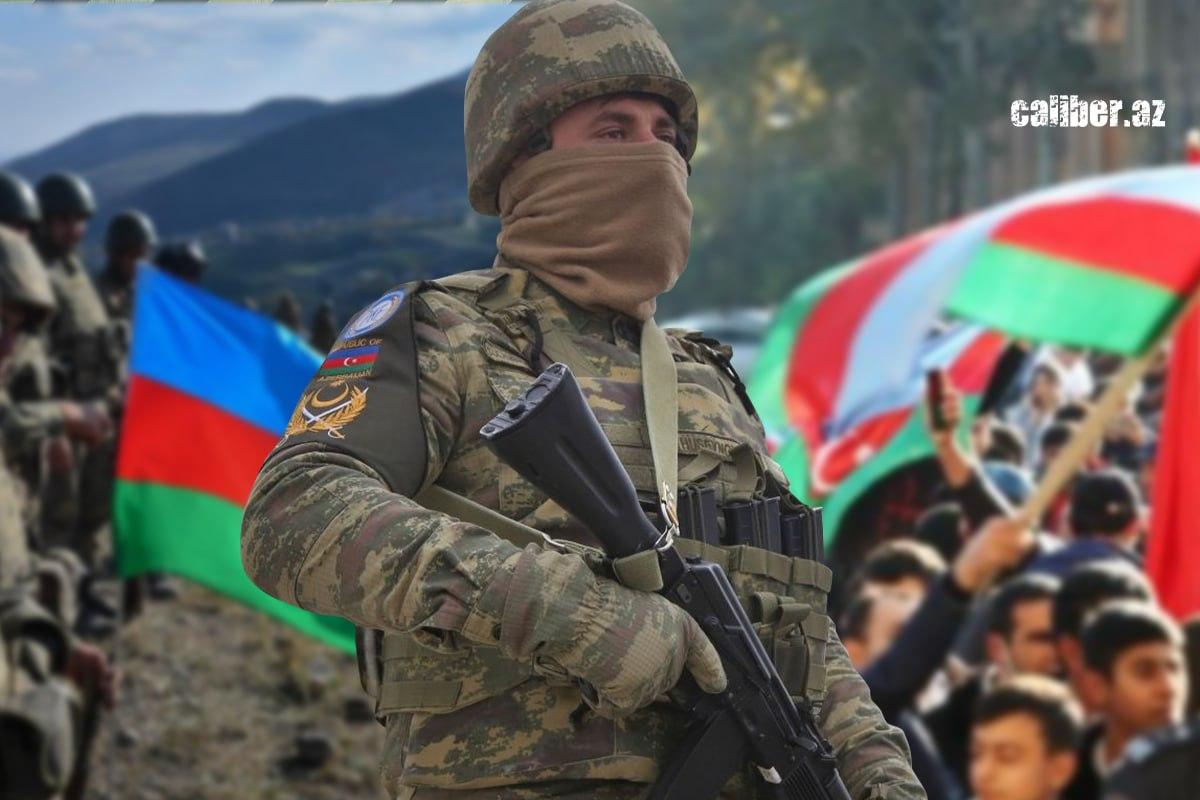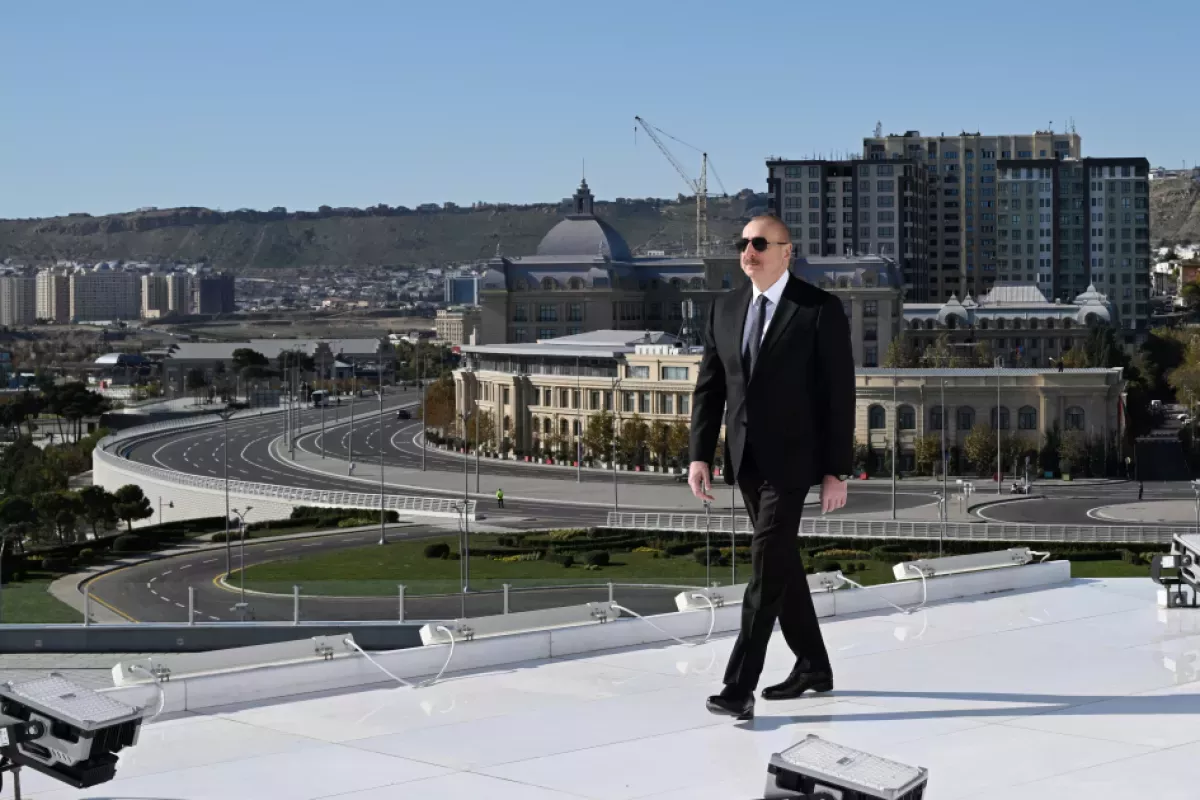Azerbaijani president's defiant messages to Armenia and its backers A crash course for Yerevan
Not only the Azerbaijani people, but the world, have grown accustomed to the fact that the speeches of President Ilham Aliyev, which carry a strategic tone, are always intricately framed with symbolic elements. On the landmark date of November 8, the president addressed the people directly from the newly inaugurated Victory Park in central Baku, where he raised the Azerbaijani flag. Following this, the Azerbaijani tricolor was also raised by the president at the State Flag Square.
The truth is now unmistakably clear to all. Let our adversaries fume with frustration—and, if they must, stew in their own discontent—because Azerbaijan’s course is steady and unshaken, advancing confidently despite obstacles or noise. As President Aliyev affirmed, the victory achieved in the Second Karabakh War "will be with us forever. From now on, the people of Azerbaijan will live as a victorious nation, and the state of Azerbaijan will live as a victorious state."
Today, all Azerbaijanis—regardless of ethnic or religious background and wherever they may live—breathe freely, with dignity and confidence in the future. No opposition from forces that, as the president noted, “wanted us to come to terms with this occupation” and now sing the same tune with different words, will prevail. This is not simply our wish but a reality created by the exceptional unity between the people and the leadership—a bond that the president rightly calls “the main source of our strength” and, just as importantly, reminds us that a “ developing Azerbaijan is a source of pride for us.”
This is why the Azerbaijani people remain steadfast in the face of efforts by forces supporting Armenia, those who have declared a “cold war” against Azerbaijan and continue to arm its neighbor. The fist of unity, which can transform into one of iron when necessary, stands ready. As the Commander-in-Chief stated, "If someone tries to test our strength again, they will be defeated once more and disgraced." This message was not only directed at Yerevan but also at the capitals of those countries that still refuse to acknowledge the Azerbaijani army’s brilliant victory. Feeling like “humiliated losers,” these nations resort to media campaigns to discredit, blackmail, and insult Azerbaijan. In response, President Aliyev has reminded them of Azerbaijan’s stance. Since the first lesson went unheeded, a second was required—and Baku is fully prepared to carry out this “educational” campaign successfully.

Apparently, "some Western patrons" are attempting to mold Armenia into a "dove of peace," "as if this 30-year occupation had never happened, as if there were no destruction, as if there were no atrocities, as if there were no Khojaly genocide. As if our mosques and graves had never been destroyed, as if the entire Karabakh and East Zangezur had never been razed to the ground." In light of this, let us remind them that doves have long symbolized peace. After World War II, Pablo Picasso, with his artistic genius, "transformed" them into messengers of peace, offering his own subtle interpretation of the symbol for the 1949 World Congress of Peace Partisans.
But the real question is: are the representatives of the Armenian establishment, who suffered a crushing defeat in the Second Karabakh War, ready to become true doves of peace? Can they finally renounce their aggressive ambitions toward Azerbaijan—starting with amending their constitution, which openly calls for the appropriation of another nation’s territory? Or, at the very least, will they accept the hand of peace extended by the victorious nation, which has graciously and nobly invited the defeated to join all regional economic initiatives?
Azerbaijan has always been, is, and will remain a peaceful state! And it is no coincidence that immediately after the Great Victory, the people of Azerbaijan began constructive work on the lands freed from occupation, because "this is our main task." In other words, a victorious people is a creative people.
However, to reiterate, when discussing various anti-Azerbaijani and anti-Islamic insinuations, President Aliyev notably recalled how, just a few years ago, the co-chairs of the notorious Minsk Group—which had stood behind Armenia for 30 years—either armed Armenia for free or provided political and financial support to maintain "Azerbaijani lands under Armenian occupation forever" Ultimately, they came to realize the words of the Commander-in-Chief: "We would rather die than stop. We will fight to the end, restore justice, restore international law and show Armenia its place."

It is important for those who support Armenia to acknowledge that Azerbaijanis have committed no wrong. Azerbaijanis have consistently provided for Armenians, who were resettled on Azerbaijani lands in the 19th century. A genuine study of history is needed—not simply learning, but a thorough understanding, including the lessons of recent years. The outcomes of the Second Karabakh War and the anti-terrorist operation present Armenia with a significant opportunity to take the necessary steps toward peace and reconciliation.
Well, if those to whom the president's messages were directed continue to pretend not to understand their true meaning, it will be a "complete tragedy" for all Azerbaijanophobes—and, above all, for Armenia. Some Western states, driven by their own interests, are ready to sacrifice Armenia, leading to further bloodshed.
In light of the above, it is worth recalling the words of several European politicians who stated that they trust the words of the President of Azerbaijan as much as his signature. This is particularly relevant, as the Commander-in-Chief emphasized, "Armenia must abandon its policy of armament; it must come to an end. I have said this repeatedly, and they know that they must pay attention to my words."
It is certain that all the messages delivered by the President of Azerbaijan on Victory Day to the relevant recipients will be heard.








